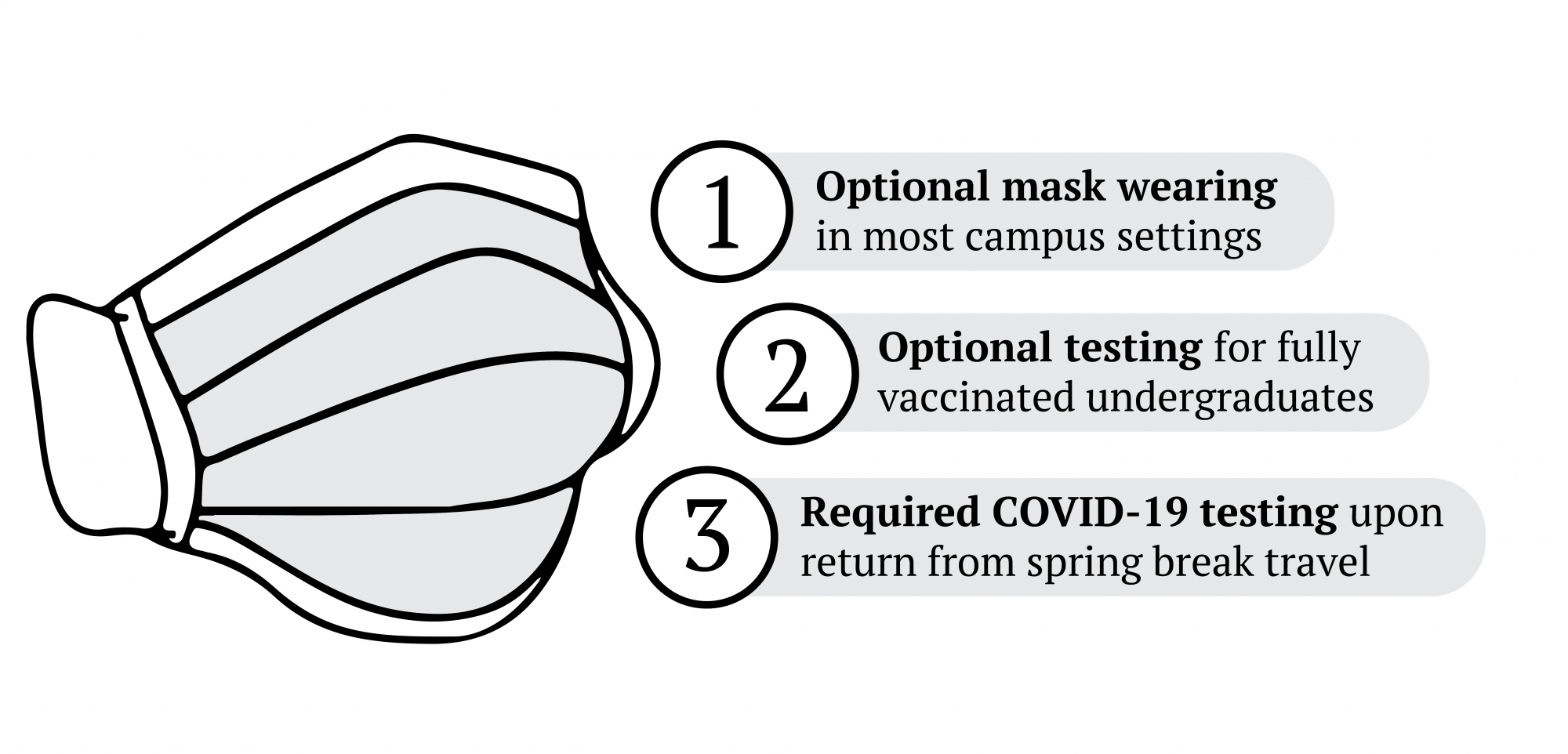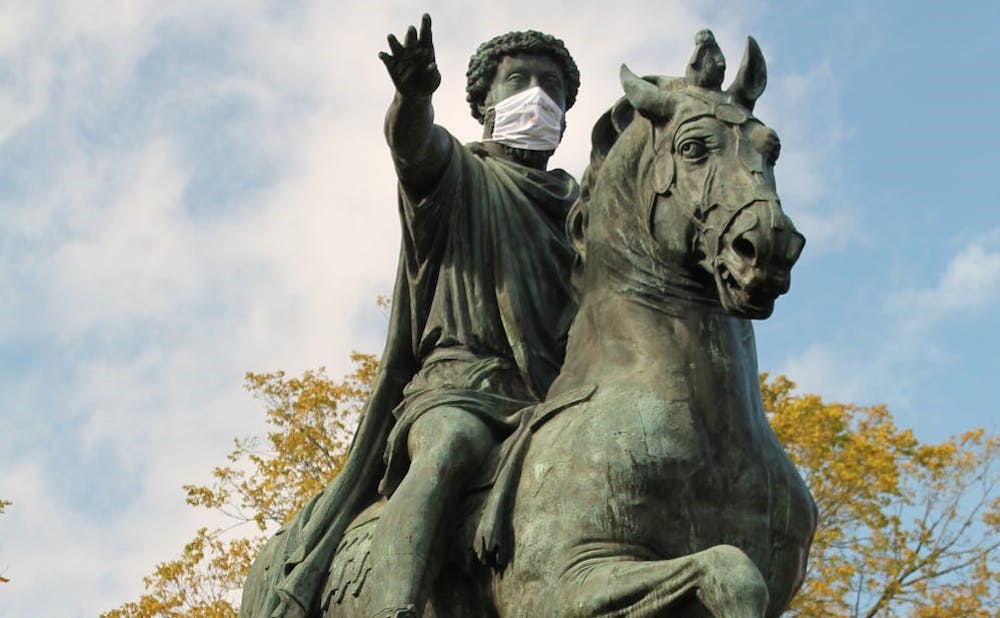Masking in most settings and testing for COVID-19 will become optional for undergraduates who are fully vaccinated starting Monday, according to an email from Executive Vice President for Planning and Policy Russell Carey ’91 MA’06.
The new optional asymptomatic testing policy applies to undergraduates “who are up to date with their COVID-19 vaccines,” Carey wrote. Since the beginning of the semester, undergraduates have been required to take two COVID-19 rapid antigen tests per week. Graduate students, medical students, faculty and staff will continue optional testing.
Masking will become optional in most settings, with exceptions including healthcare facilities, the Alpert Medical School, University shuttles and classes and meetings where the professor or host requires students and attendees to wear masks.
University community members who are unvaccinated must continue to test twice per week and wear masks indoors, Carey wrote.

The University continues to recommend testing for individuals showing symptoms, those who may have been exposed to COVID-19 and those who may be in a situation where they could expose others to the virus, including “before traveling, attending large gatherings or interacting with those who are at elevated risk of severe COVID.”
University students who travel over spring break will be required to test twice upon returning to campus, with tests on day one and day three after returning.
Students who test positive will continue to be required to report positive test results to University Health Services, while faculty, staff and postdoctoral researchers are required to report positive results to University Human Resources.
Carey thanked community members for their diligence “in masking, reporting their vaccination status and participating in testing requirements,” which allowed the University to ease restrictions as the “(Centers for Disease Control and Prevention) and the state report improved health conditions in Providence and Rhode Island.”
Carey wrote that cases on campus have continued to remain low, and that the “cases we are seeing are generally characterized by no to moderate symptoms.”
“Over the seven weeks of the semester to date we have had no instances of hospitalization, severe illness, clusters or outbreaks,” Carey added.
Carey recommended that community members “continue to carry a well-fitting KN95, KF94, N95 or disposable/surgical mask at all times in case a situation arises where a mask is required.” He also reminded the community that wearing a mask is still a personal choice, despite not being required.





